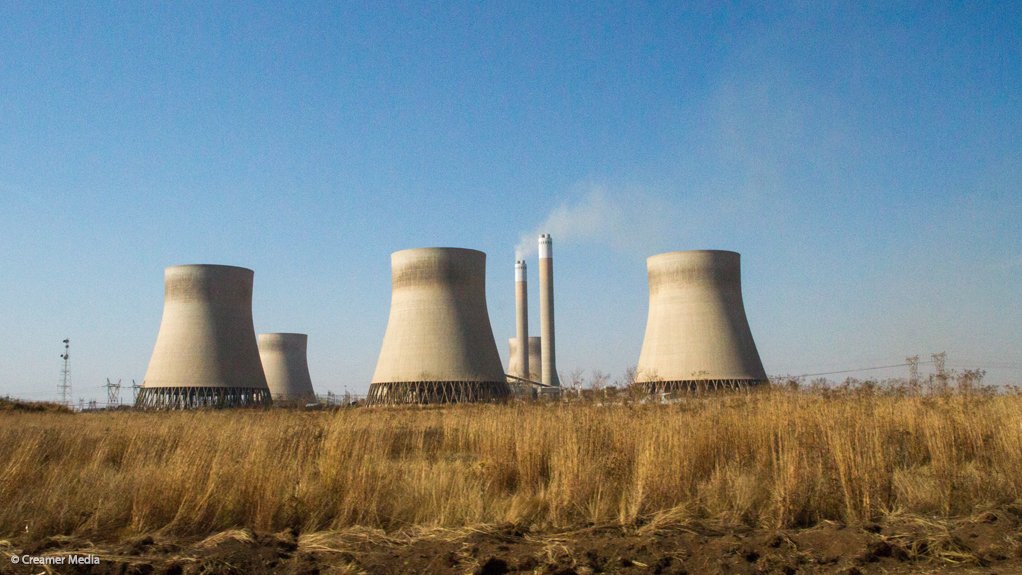State-owned electricity producer Eskom is gearing up to implement philosophy maintenance as a centralised project across its unreliable coal fleet, where ongoing breakdowns have increased the risk of growth- and confidence-sapping load-shedding.
The utility’s board has given its approval for the project-based approach and has also sanctioned a material increase in the maintenance budget, the size of which has not yet been disclosed.
Experienced maintenance specialist Michiel Reimers, who previously worked for Sasol, has been appointed, as of March 1, to implement the project, which is being sponsored by CEO Andre de Ruyter.
A project steering committee, chaired by COO Jan Oberholzer, has also been established to oversee the implementation of the project.
In an exclusive interview Oberholzer tells Engineering News that the board has already sanctioned the centralised methodology for arresting the maintenance backlog across the coal fleet.
The board has also approved a “significant amount” of additional capital to support the project’s implementation.
“I am not in a position to disclose the figure, but it is a significant amount of money.”
The project, which has already been piloted at several units, will not be implemented during the 21-day Covid-19 lockdown, however, so as to keep the number of workers on site to a minimum.
In addition, several units have been removed from service during the period in response to a precipitous fall in demand of greater than 7 500 MW.
During low-demand night-time periods, South Africa’s electricity demand has fallen to about 16 000 MW and Eskom is experiencing peaks of less than 24 000 MW.
Besides shutting certain coal units, Eskom has also distributed force majeure notices to several renewable-energy independent power producers (IPPs) indicating that it could, over the coming weeks, curtail procurement from the IPPs for a few hours a day during low-demand periods.
EE Business Intelligence MD Chris Yelland reports that Eskom has given the assurance that the curtailment will not result in financial losses to IPPs, as any energy curtailed can be added back by the IPPs supplying more energy on other days.
LOCKDOWN MAINTENANCE
During the lockdown, Eskom will apply “risk-based” maintenance and also continue with planned maintenance involving units with a combined capacity of 10 000 MW.
“We believe that, during this period of low demand, we will be able to address 2 000 MW of partial load losses with this risk-based methodology,” Oberholzer reports.
Eskom is also using the lockdown period to prepare for the full implementation of the philosophy-maintenance project, which, once demand normalises, is likely to increase the risk of load-shedding until July 2021.
This load-shedding risk will arise, owing to a strict adherence to maintenance schedules, which could result in demand exceeding supply on certain days.
Eskom is aiming to limit load-shedding to Stage 2 (2 000 MW) or lower for the coming 18 months, but it has already implemented higher stages since the start of the year as a result of high levels of unplanned outages.
The main features of the philosophy-maintenance project will include:
Maintaining power station equipment in line with the protocols outlined by the original equipment manufacturers (OEMs);
Adhering strictly to outage schedules, including extended outages for mid-life refurbishments;
Entering into long-term and risk-sharing partnership arrangements with the OEMs that supplied the equipment for the coal-fired power stations;
And securing National Treasury approval for strategies that would increase Eskom’s procurement agility, without undermining governance.
Oberholzer says negotiations are at an advanced stage with the OEMs that initially supplied the original boilers and turbines at the various power stations and that he is optimistic that partnering agreements will be in place by the end of April.
The agreements, which could have durations of up to ten years, will be implemented through Eskom’s Rotek subsidiary and a new COO, with significant construction experience, will be appointed at Rotek in the coming weeks to oversee the project.
The agreements will include “gain and pain” clauses, whereby the OEMs share in the upside and the downside of contract performance.
“So, we are really now focused on running this as a project with very experienced contractors, which we want to have as partners,” Oberholzer explains, stressing that all the OEMs have the black-economic empowerment credentials necessary for Eskom to engage their services.
“In our negotiations with OEMs we are also indicating to them which contractors have been performing maintenance for us in the past and are encouraging them to approach them to include them as subcontractors.”
Besides finalising the contracts with the OEMs, the current focus at Eskom is on completing the upfront planning required to transition the maintenance of the coal fleet from the operations and maintenance sphere to that of a centralised project.
As part of that effort, Reimers is currently conducting visits to all the power stations to “understand the lay of the land”.
As to why Eskom has not implemented philosophy maintenance during the demand lull created by the lockdown, Oberholzer says it would have been too risky to take a number of units out for a 60-day period, as there would have been no way of returning those units to service should demand rapidly normalise post the lockdown.
In addition, the travel restrictions make it impossible for the OEMs to bring in some of the critical skills they require from abroad to implement the contracts.
“That is why we took the decision to postpone the implementation of philosophy maintenance until after the lockdown.”
EMAIL THIS ARTICLE SAVE THIS ARTICLE ARTICLE ENQUIRY
To subscribe email subscriptions@creamermedia.co.za or click here
To advertise email advertising@creamermedia.co.za or click here











